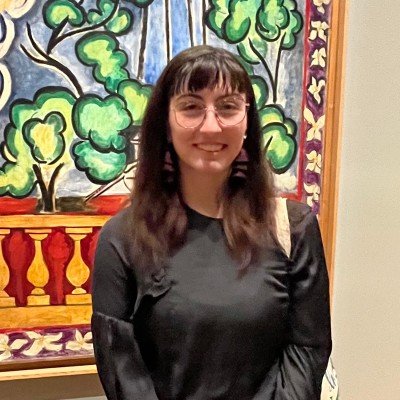Emerging Poet Award Finalist: “Game” by Amanda Dutkiewicz
Amanda Dutkiewicz is a writer and museum worker in the South Jersey/Philly area. Her fiction dictates the shifting creases of the mind, the body, and the present spirituality of water as a source of self-creation and self-expression, particularly where contradictions form as horror--but also joy. She finds inspiration in the archive and in the exchanges of strangers everyday.
Game
by Amanda Dutkiewicz
Roy and Theo go down to the beach on their own. Their mother equips them with helmets and snack bags, quick kisses on the way out the door.
Eddie Roethlisberger was drafted into the war at age 19. He left on a Sunday and he remembers this because he would normally go to church with his wife that day, but left unequipped, except for a kiss on the cheek.
Roy and Theo pedal their bikes for blocks and blocks. Gulls watch them from the tops of houses.
The Jeep Eddie left in was cold, godless.
You’ve never seen toys like these, Eddie. Gun, loaded.
Hard stop on the brakes. They make it to sand.
Eddie found that aiming for the eye was a game he often played. It was always the left one.
Roy used to take Theo’s toys to see how long he would cry for them.
Eddie, I’m pregnant. It’s a boy, said the letter. Eddie almost wept but couldn’t.
The gulls eye the snack bags. All they know is hunger.
Eddie watched villages burn, and he set the fires.
Roy used to make blanket forts with Theo when the yelling started. They would curl up inside and pretend the warmth of the soft bunker meant their mother wasn’t bleeding.
The things they did in war, Eddie can’t remember. He just remembers the noise, and then it was gone.
The sand is hot and trails form behind their eager feet. Theo is slow, from a weak leg.
Eddie didn’t know much more than setting fires, so he did, with just words.
Roy looks up to his father.
The highest form of flattery is imitation.
Their mother made noise, and then it was gone.
When the child was born, it cried. Eddie covered his ears and hurled himself out the door. Fatherhood exploding. He didn’t come back to her bedside.
Horseshoe crabs crawl along the shore like little aliens with hats. Something between rock and creature.
She named the child Roy, after her own father, a calm and patient man.
Roy never remembers which of Theo’s legs is the weak one.
Theo could never tell if a horseshoe crab was alive or dead because they rarely moved when he looked at them.
Eddie watched houses go up, burn.
Roy and Theo used to play war in the backyard. Roy played a soldier named “Eddie” and Theo played a soldier named “mom,” because Roy never remembered her name. His father never said it.
Eddie got older and his feet didn’t work anymore. He wasn’t as old as he should of been for his feet not to work but he imagined it didn’t matter because he didn’t want to move anyway; even his own footsteps were too much noise.
The crabs line the mudflats like corpses.
“Eddie” always won.
Roy picks one up, flips it over, and takes a shovel to its crawling underbelly.
All scooped out.
The gutted thing hangs on his head, messes his hair blue, drips entrails down the right side of his face. He wields the tail as sword. They duel, together, feet dancing on the pale sand, before the tide comes in to wash their prints away.
